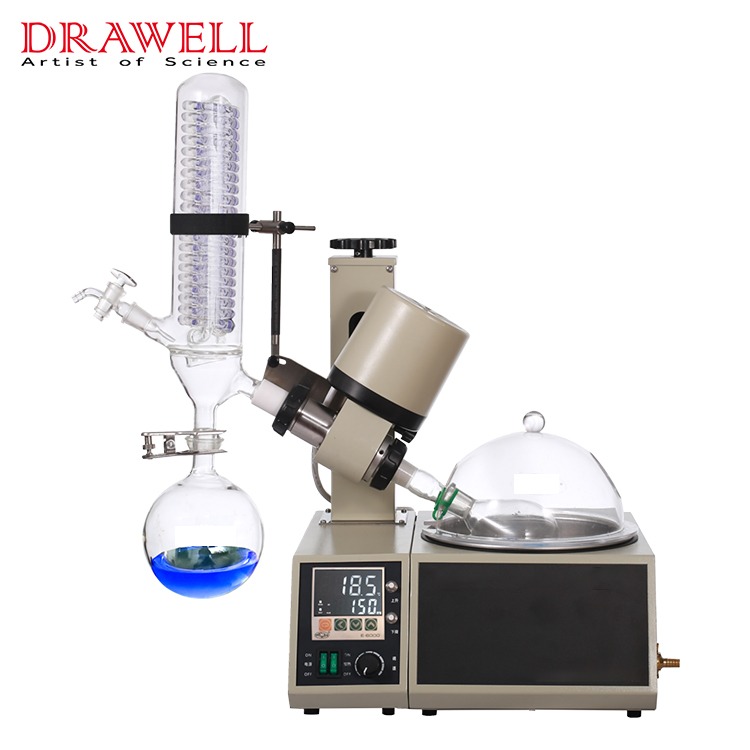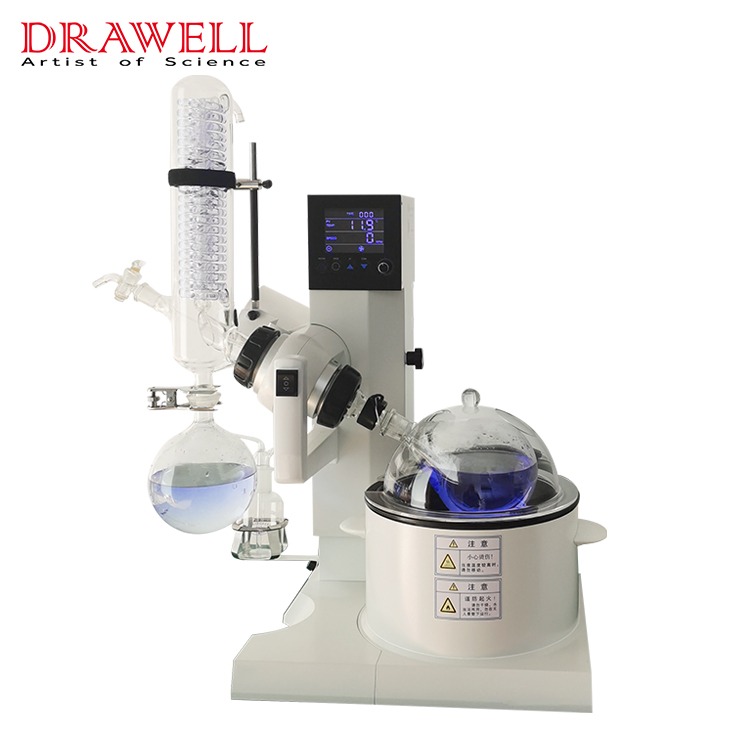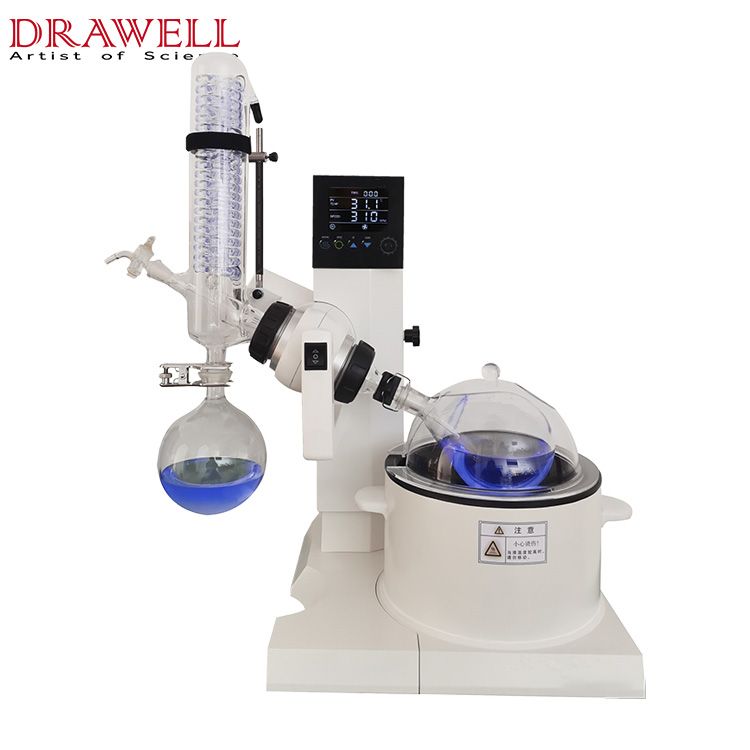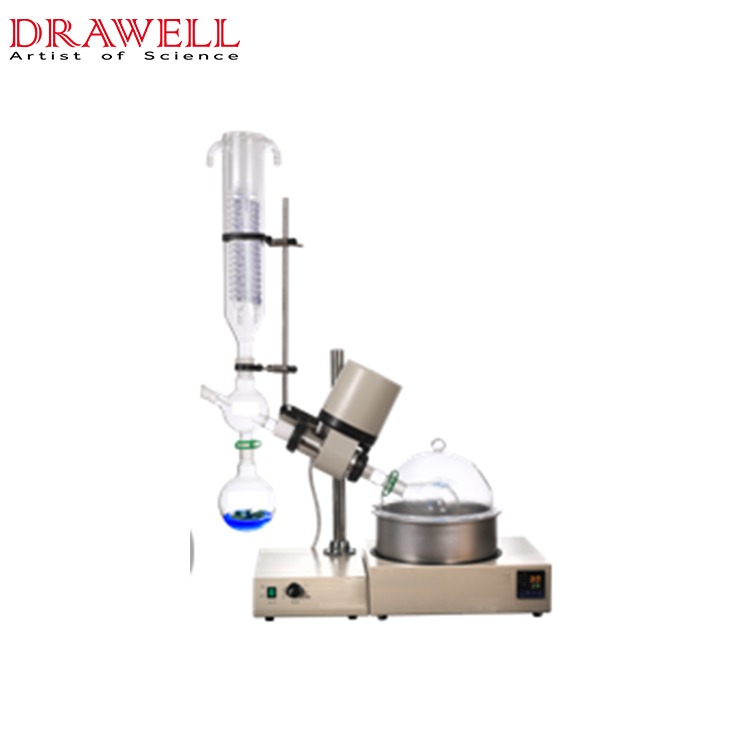A rotary evaporator, also known as a rotovap or rotavapor, is a scientific apparatus that is used to efficiently and gently evaporate solvents from samples. This flexible instrument is essential in a variety of scientific and industrial applications. In this article, we will focus on the topic of what is a rotary evaporator, exploring the principles, types, and common applications of a rotary evaporator.
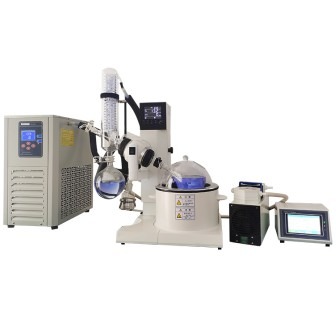
What are the Principles behind a Rotary Evaporator?
The process of evaporation is the main concept governing a rotary evaporator. Evaporation is a physical separation process that uses heat and pressure to convert a liquid solvent into a vapor. Researchers can isolate and concentrate the solute by evaporating the solvent, resulting in the purification of the desired molecule.
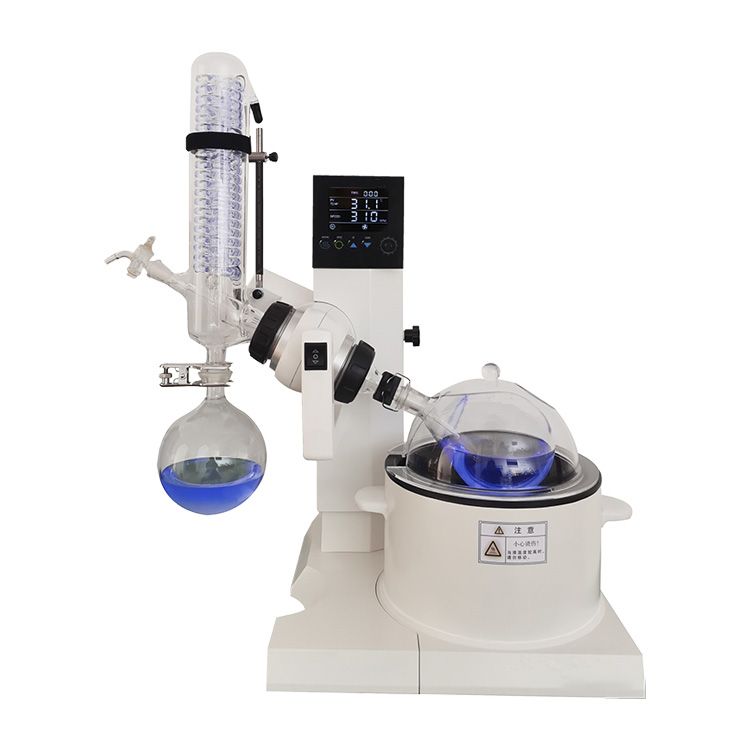
What are the Different Types of Rotary Evaporators?
Rotary evaporators are available in a variety of configurations, each tailored to individual needs and applications.
Traditional Rotary Evaporators
These are the standard rotary evaporators used in laboratories for normal solvent evaporation and concentration duties.
A heating bath, rotating flask, condenser, vacuum system, and receiving flask are common components.
Traditional rotary evaporators are operated manually, providing for basic temperature, rotation speed, and vacuum level control.
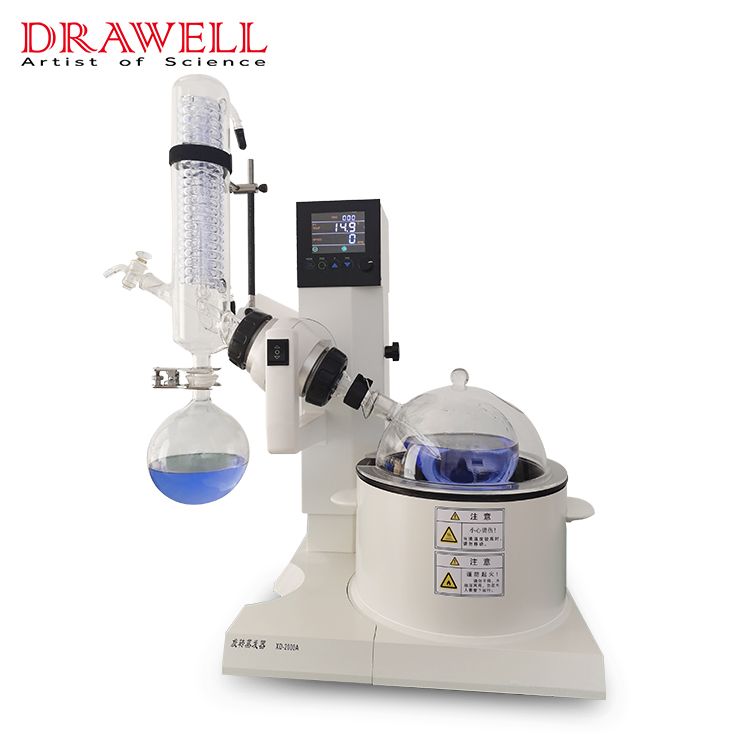
Automated Rotary Evaporators
Advanced automation features in automated rotary evaporators make them more user-friendly and efficient.
They frequently include touchscreen interfaces or computer control, enabling for fine parameter control and programming.
Safety features and data logging capabilities may be integrated into automated models.
Industrial-Scale Rotary Evaporators
Laboratory rotary evaporators are smaller and less powerful than industrial rotary evaporators.
They are designed for better throughput and higher volume in industrial settings.
Industrial-scale rotovaps may have improved heating and cooling capacities, as well as the ability to operate continuously.
Parallel Rotary Evaporators
Parallel rotary evaporators are made up of many evaporation units that can function independently and simultaneously.
They are especially effective in high-throughput applications, allowing researchers to process several samples at the same time.
Cold Trap Rotary Evaporators
Cold trap rotary evaporators have additional cooling systems to prevent volatile compounds from being lost during the evaporation process.
These systems help to trap and condense vapors that might otherwise escape into the vacuum pump, preserving valuable compounds and preventing contamination.
Vacuum-Controlled Rotary Evaporators
Vacuum-controlled rotary evaporators enable accurate control of the vacuum level, improving evaporation process control.
They are useful when dealing with samples sensitive to changes in pressure.
Hybrid Rotary Evaporators
Rotary evaporators that are hybrids combine rotary evaporation with other processes such as distillation or extraction.
These devices provide increased adaptability by performing many processes in a single unit.
Large-Scale Rotary Evaporators
Large-scale rotary evaporators are intended for large-scale sample processing or industrial-scale applications.
They frequently have larger flasks and more durable components to withstand increased demands.
It is critical to select the appropriate type of rotary evaporator depending on the application’s unique requirements, sample volume, and throughput requirements.
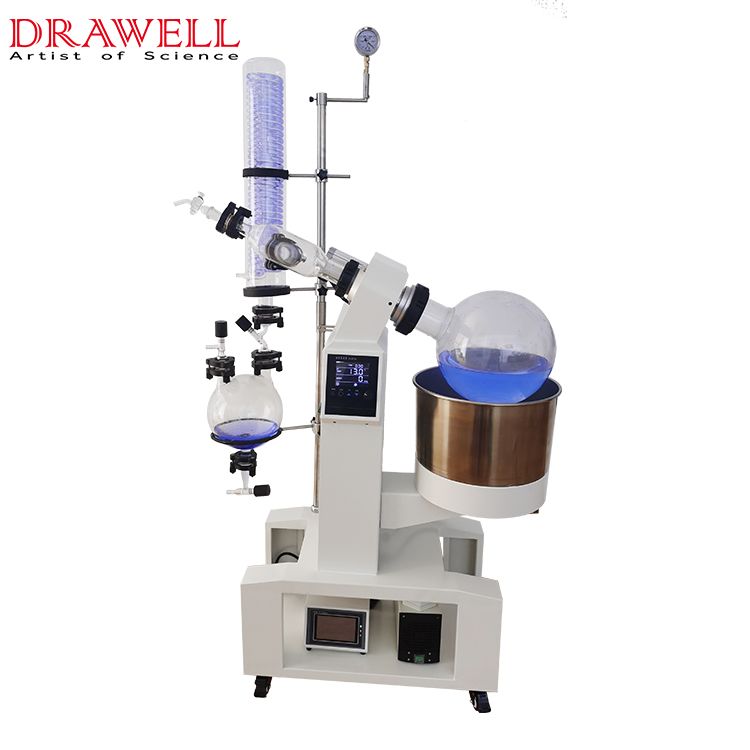
What are the Common Applications of Rotary Evaporators?
- Solvent Removal and Concentration
The removal of solvents from liquid samples is one of the principal applications of a rotary evaporator. It is particularly useful in chemical synthesis, where researchers must concentrate reaction products, purify molecules, or isolate specific chemicals.
- Drug Discovery and Development
A rotary evaporator is widely used by pharmaceutical researchers to concentrate and purify active pharmaceutical ingredients (APIs) from complicated mixtures. This helps with drug research, formulation, and quality control.
- Essential Oil Extraction
A rotary evaporator is used to extract essential oils from plants and herbs in the food, cosmetic, and fragrance sectors. The delicate aromatic ingredients are preserved by the gentle evaporation procedure.
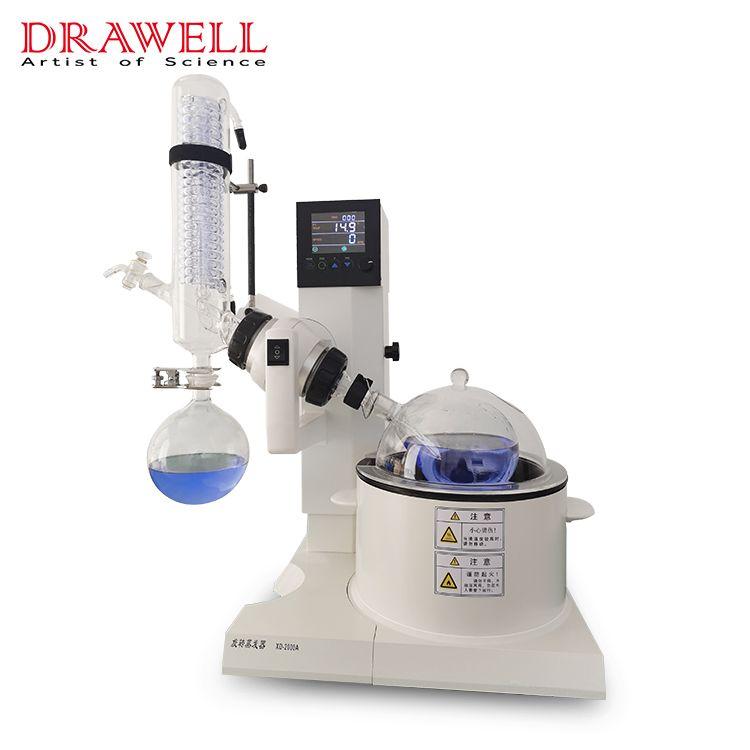
- Environmental Analysis
Rotary evaporators are used to extract essential oils from plants and herbs in the food, cosmetic, and fragrance sectors. The delicate aromatic ingredients are preserved by the gentle evaporation procedure.
- Natural Product Extraction
Rotary evaporators are used by researchers in fields such as natural product chemistry and phytochemistry to extract bioactive substances from plants and other natural sources.
- Concentration of Analytical Samples
Rotary evaporators aid in the concentration of samples in analytical chemistry by lowering the volume to a level appropriate for examination using various techniques such as chromatography or spectroscopy.
- Solid Residue Extraction
The solid residues remaining in the flask after evaporation can be further studied or employed for a variety of purposes, such as solid-state characterisation or further chemical processes.
- Solvent Recycling
A rotary evaporator can be used in conjunction with solvent recovery systems, allowing laboratories and companies to recycle and reuse solvents while lowering waste and operating expenses.
- Polymer Research
A rotary evaporator aids in the removal of leftover monomers or solvents from produced polymers, assuring high purity and better characteristics.
- Teaching and Educational Purposes
In educational contexts, rotary evaporators are widely used to explain solvent evaporation principles and teach students about laboratory practices.
- Sample Preparation for Mass Spectrometry
Rotary evaporators are used in analytical laboratories to concentrate samples prior to examination using mass spectrometers.
Summary
In laboratories and industries working with solvents and sample preparation, a rotary evaporator is a strong and necessary instrument. Its capacity to evaporate gently and efficiently makes it a handy instrument in a variety of scientific disciplines.

